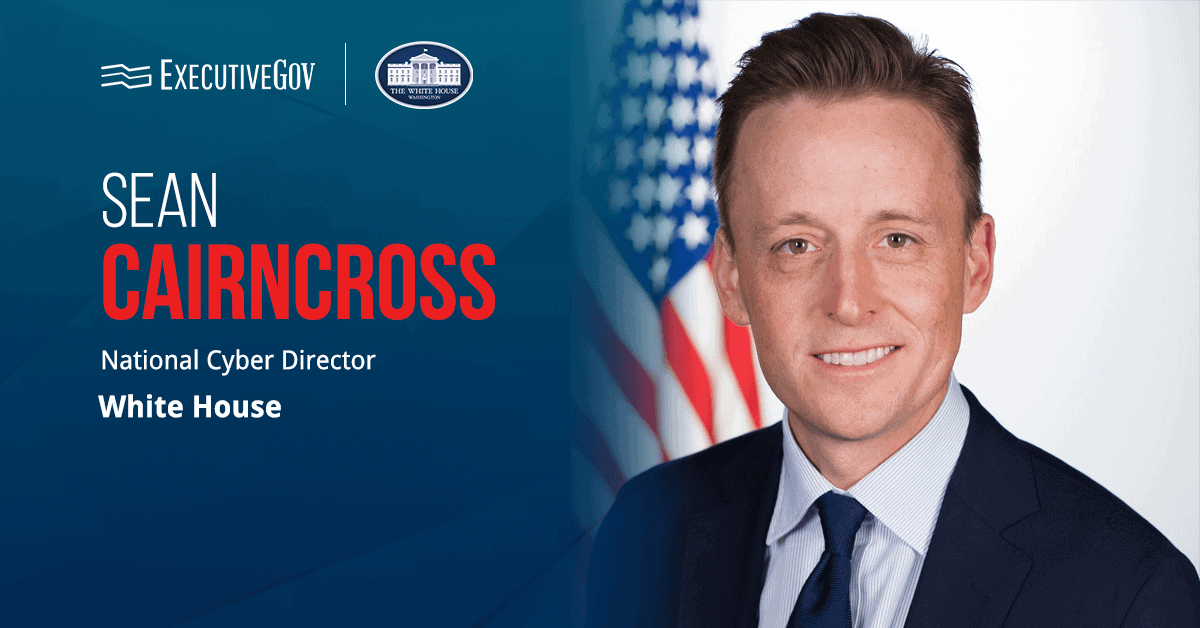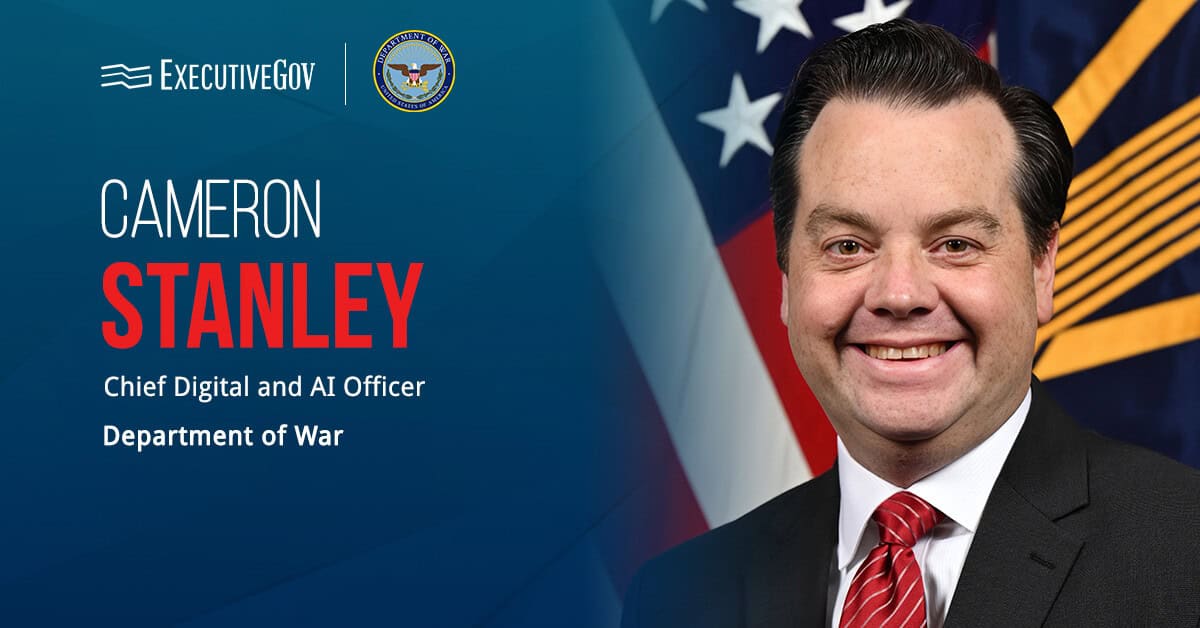National Cyber Director Sean Cairncross has outlined the Trump administration’s upcoming national cybersecurity strategy, emphasizing a streamlined approach to securing the nation’s digital infrastructure with a focus on practical implementation over exhaustive documentation, Homeland Security Today reported Saturday.
“It is not going to be a 100-page document that has charts and every detail is spelled out. This will be a strategy document,” he said during his remarks Friday at the 2025 Meridian Summit in Washington, D.C.
“It will be setting the posture of the United States in this domain and things that we are driving toward,” added Cairncross, who was confirmed as head of the White House Office of the National Cyber Director, or ONCD, in August.

Learn about the role of AI in assisting DHS-led cyber operations at Potomac Officers Club’s 2025 Homeland Security Summit on Nov. 12!
Table of Contents
Strengthening ONCD’s Role
Elevating ONCD’s role as the federal government’s primary cyber coordination mechanism was a key theme of his remarks at the summit. This priority reflects recommendations from the recently published CSC 2.0 report, which called for enhanced resources and authorities for the office.
“The U.S. government has never had a single point of cyber coordination or a cohesive, coordinated cyber strategy coming from the White House,” Cairncross said. “It is a goal of ours to get this office there.”
Breaking Down Silos Through Collaboration
ONCD is developing the strategy in collaboration with the Cybersecurity and Infrastructure Security Agency, the National Security Council and the FBI. According to Cairncross, the approach emphasizes breaking down silos that have fragmented cybersecurity initiatives within the federal government.
“Across the administration, we are making a full effort to align our actions and operations and tactics so they link with a strategy designed to put America first,” he added.
Cairncross on Need to Reauthorize CISA 2015
The national cyber director stressed the need to reauthorize the Cybersecurity Information Sharing Act, or CISA, of 2015.
CISA, which expired on Sept. 30, established legal frameworks to enable government and private sector organizations to share cybersecurity threat intelligence while offering antitrust and liability protections.





